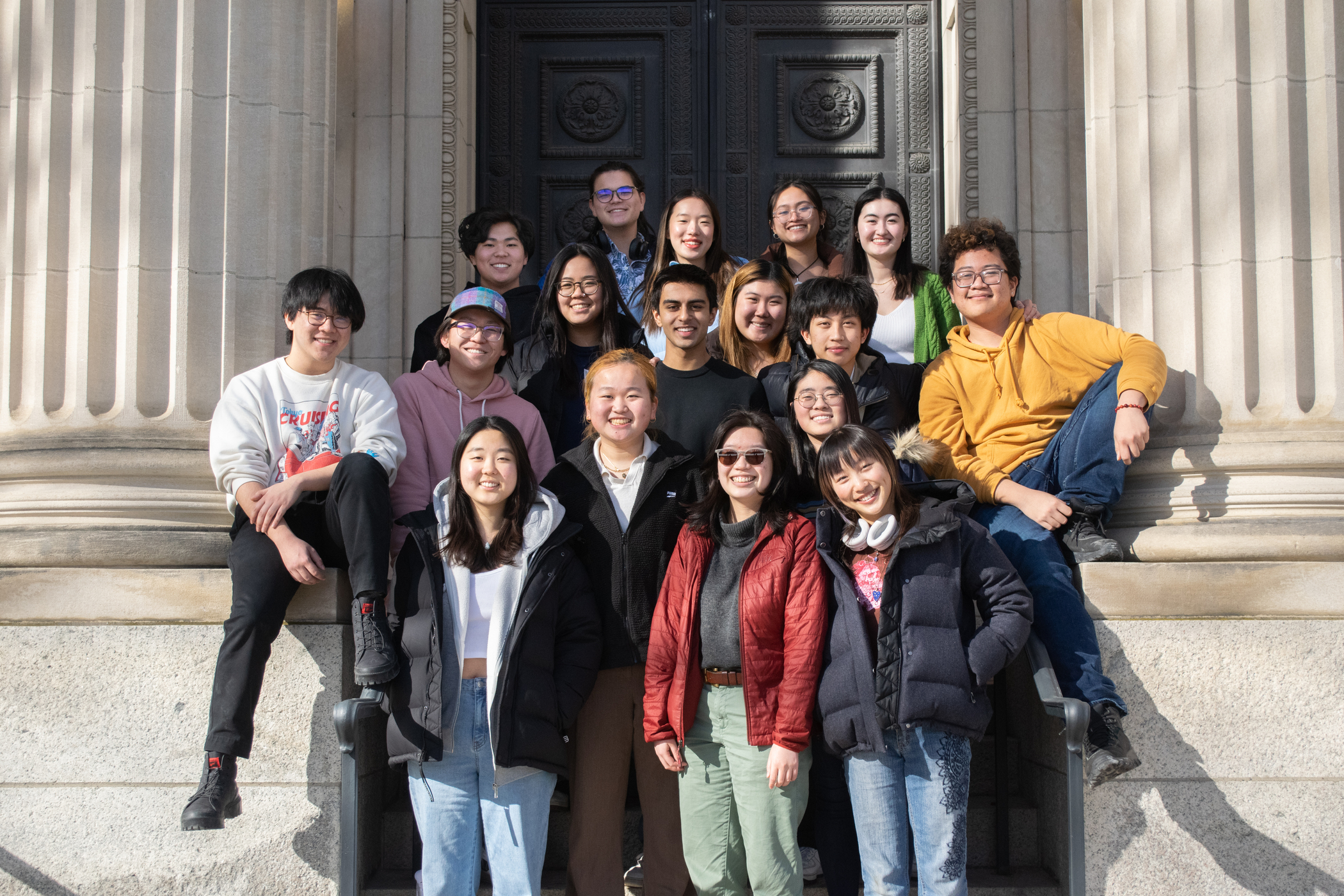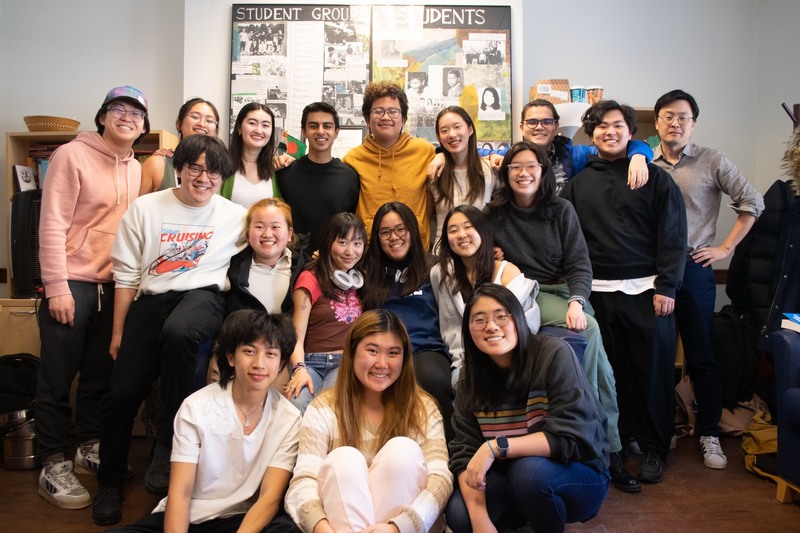Asian American Student Activism at Dartmouth College
Introduction by Lance Paul Sunga '26, Lin Lin '26, and Anh-ton Nguyen '26
"Remember that consciousness is power. Consciousness is education and knowledge. Consciousness is becoming aware. It is the perfect vehicle for students. Consciousness-raising is pertinent for power, and be sure that power will not be abusively used, but used for building trust and goodwill domestically and internationally. Tomorrow's world is yours to build."
Yuri Kochiyama
About This Project
Through this course, we have realized that we can accumulate the power to build Dartmouth’s place in “tomorrow’s world.” The course that culminated in these exhibits trained us in the methods and interpretation of the archival history of our people. We conducted research in Rauner Special Collections Library, explored sources from other collections, and conducted interviews with alumni/stakeholders involved in past activism at Dartmouth College. We read secondary scholarship like Clare Jean Kim's "The Racial Triangulation of Asian Americans" and learned from our teaching assistant, Daniel Lin '23's culminating research in Asian American Studies efforts. After we completed working through archival material, we used our research to contextualize how Asian American students mobilized to change the culture of the College in the past.
Below you will find four digital exhibits based on the historical materials gathered by the class of Sociology 76: Asian American Student Activism at Dartmouth College, in addition to the oral history interviews they conducted. These exhibits address a range of experiences of Asian American students who, through their community building, their resistance, their art and performances, and their activism, need to be remembered by the institution.
Section 1: Community Building "Asian and Asian American students have a long history of building social organizations on campus by finding social belonging through groups centered on Asian identity as well as their own interests. Even though Dartmouth makes these groups difficult to sustain in activity and membership due to a multitude of reasons, Asian and Asian American students continuously rebuild organizations and take over existing ones to create space."
Section 2: Anti-Asian Hate "Asian and American students have not stayed silent when instances of anti-asian hate and sexual assault against the community are present on campus. Even though Dartmouth remains solely reactionary, causing waves of discrimination to reappear on campus, student organizations and communities have continuously advocated for change in the campus culture to be rid of these biases."
Section 3: Artistic Expression "Asian American artistic expression is fluctuating, with different peaks and troughs through the years. Even though Dartmouth forgets the racialized aspect of these creative outlets when discussing them, we offer the lens of palimpsest as a tool to recuperate our forgotten pasts and take up space for our collective futures as Asian Americans."
Section 4: Institutional Response "Dedicated faculty, staff, and students have found themselves in a cycle of fighting for Asian and Asian American studies years and even decades apart. Even though Dartmouth has not sufficiently answered student and faculty demands, the community has always built relationships and spaces that can provide hope for a more radical future and curriculum for the institution."
We recognize that this exhibit does not fully address the history of Asian American activity on campus, but rather, only what the institution has decided to keep as some sort of memory. We call on future students to find more stories, more experiences, and more hope for the betterment of Dartmouth College. We also call for the institutionalization of Asian American Studies at Dartmouth.
We propose the statement below as a way to think about what these experiences mean for the future of the College:
Credits and Acknowledgements
We would like to thank Laura Braunstein, the Digital Humanities Librarian, August Guszkowski, the Edward Connery Lathem '51 Digital Library Fellow, and Peter Carini, the College Archivist and Records Manager, for the many ways they made the associated exhibits possible. Furthermore, we would thank the various alumni and staff we interviewed to flesh out and contextualize the archives found in Rauner Library. We would also like to acknolwedge the generous funding support from the Frank J. Guarini Associate Dean of International Studies and Interdisciplinary Programs Matthew Delmont.
We would also like thank Professors Deborah King (sociology) and Julia Rabig (history). Their courses, Sociology 79.08 "Lest We Forget: History, Collective Memory and Slavery at Dartmouth" and "History 10: Dartmouth Black Lives," provided us with important examples to follow as we worked on our project.
Most importantly, we would like to thank Nora Yasumura who made our effort possible through her collection of the archival material. Shout out to Dr. Julian Saporiti of the "No-No Boy Project" for being a “good hang” and teaching us how to visualize this exhibit in a 21st-century way of thinking.
This project came out of Daniel Lin ‘23’s involvement with the Dartmouth Asian American Studies Collective (DAASC). When DAASC was founded, students knew that they were not the first group to advocate for Asian American Studies at Dartmouth, but they did not know the full history of what had happened. During Winter 2022, Daniel began a personal research project and dug through Rauner archives in order to better understand the history of Asian American Studies at Dartmouth. Advised by Professor Sunmin Kim, Daniel continued this research in his Sociology culminating experience in Fall 2022, during which he interviewed 19 people who had been involved in the implementation of ethnic studies at Dartmouth. His main takeaway from this research was that this history is much more expansive than what he could hope to document by himself. Working together with Professor Kim, they developed this iteration of SOCY 76 in order to uncover more of the archive and communicate this history to a broader audience.
Some items in this exhibit may be harmful or difficult to view because they are racist, sexist, ableist, homophobic, transphobic, classist, or contain otherwise offensive or hateful views and opinions. We, the students in Sociology 76, along with the Dartmouth Library, recognize that making these materials widely available could potentially lead to their use in harmful ways. We also recognize that making these materials available opens them to historical critique. While we do not endorse or agree with the perspectives represented in these materials, we believe that a critical eye turned on the past creates insight that develops avenues for social change.


